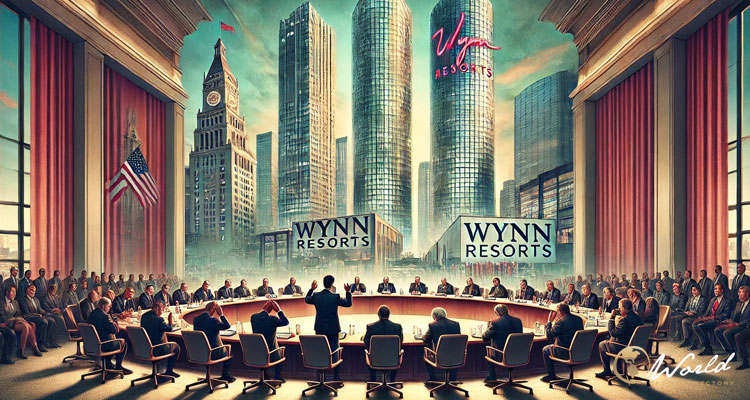In a unanimous vote, Manhattan Community Board 4 (MCB4) rejected the zoning changes required for Related Companies and Wynn Resorts to move forward with their $12 billion Hudson Yards casino proposal. The decision underscores mounting local opposition to the controversial plan, which includes a massive casino, office space, residential housing, and a public park.
Community board opposes Hudson Yards casino plan:
Though the community board’s vote is advisory and does not have the authority to block the project outright, it signals significant hurdles for Related and Wynn as they vie for one of three downstate casino licenses expected to be awarded by the New York State Gaming Commission in late 2025.
The rejection reflects deep concerns about the proposed zoning changes, which diverge from the commitments made during the 2009 rezoning agreement for Hudson Yards. That plan focused on residential development, with nearly 5,800 housing units, more affordable housing, and less commercial space. The updated proposal reduces residential units to 1,500 and prioritizes a casino and office towers.
One of the primary opponents of the project, Friends of the High Line, has raised concerns about the development’s potential to cast shadows over the elevated park and disrupt the surrounding community. Alan Van Capelle, the group’s executive director, praised the board’s rejection, calling it a “historic and courageous decision.” He urged Related to withdraw its application and collaborate on a community-driven plan to reimagine the site.
“This proposal simply isn’t a fit for this site,” the board stated in its letter to City Planning Director Dan Garodnick. The letter cited environmental concerns, including potential traffic and air quality issues, as additional reasons for opposing the casino.
Joshua David, co-founder of the High Line, was equally critical. “A carefully planned mixed-use neighborhood is wiped out for a garish Las Vegas-style monstrosity that has no place on Manhattan’s West Side,” he said during Monday’s meeting, as New York Post reported.
Despite opposition, Related and Wynn maintain that the project would bring significant economic benefits, including 35,000 construction jobs, 5,000 permanent positions, and a public school. Related’s spokeswoman Natalie Ravitz noted that the board has historically resisted development but expressed optimism about working with local elected officials. According to Crain’s New York Business, she stated: “While many of their ideas are not fiscally feasible to implement, we welcome feedback and elements that can make this project and neighborhood better. We are focused on moving forward with local elected officials, who have been committed to pursuing realistic plans that deliver the jobs, housing and community improvements New York needs today.”
Broader casino licensing battle:
The Hudson Yards casino proposal is one of four bids requiring city-level zoning approvals. Others include Steve Cohen’s Citi Field proposal in Queens, Bally’s plannear Ferry Point in the Bronx, and Thor Equities’ Coney Island project. In contrast, competing bids like Las Vegas Sands’ Nassau Coliseum plan and the SL Green/Caesars Entertainment/Jay-Z Times Square proposal do not face the same zoning hurdles.
Friends of the High Line is not alone in its opposition to new casinos. Across the city, many neighborhoods have expressed NIMBY (Not In My Backyard) concerns, reflecting broader resistance to hosting gaming facilities in local communities.
Meanwhile, existing gaming operators like Resorts World New York City at Aqueduct and MGM’s Empire City in Yonkers are also competing for licenses to expand their operations to include live table games.
The fate of the Hudson Yards casino now hinges on gaining City Council approval for zoning changes, a process complicated by the community board’s rejection. Local Council Member Erik Bottcher, who has expressed skepticism about altering the existing zoning, holds significant influence over the project’s future.
Even if the zoning changes are approved, the proposal must still survive the state-level casino licensing process, where committees comprising local officials will cast binding votes on each bid by September 30.
Supporters of the project, including influential labor unions and business leaders, argue that it represents a transformative opportunity for Manhattan’s West Side. Critics, however, continue to emphasize its potential impact on community character, environmental quality, and public spaces like the High Line.



